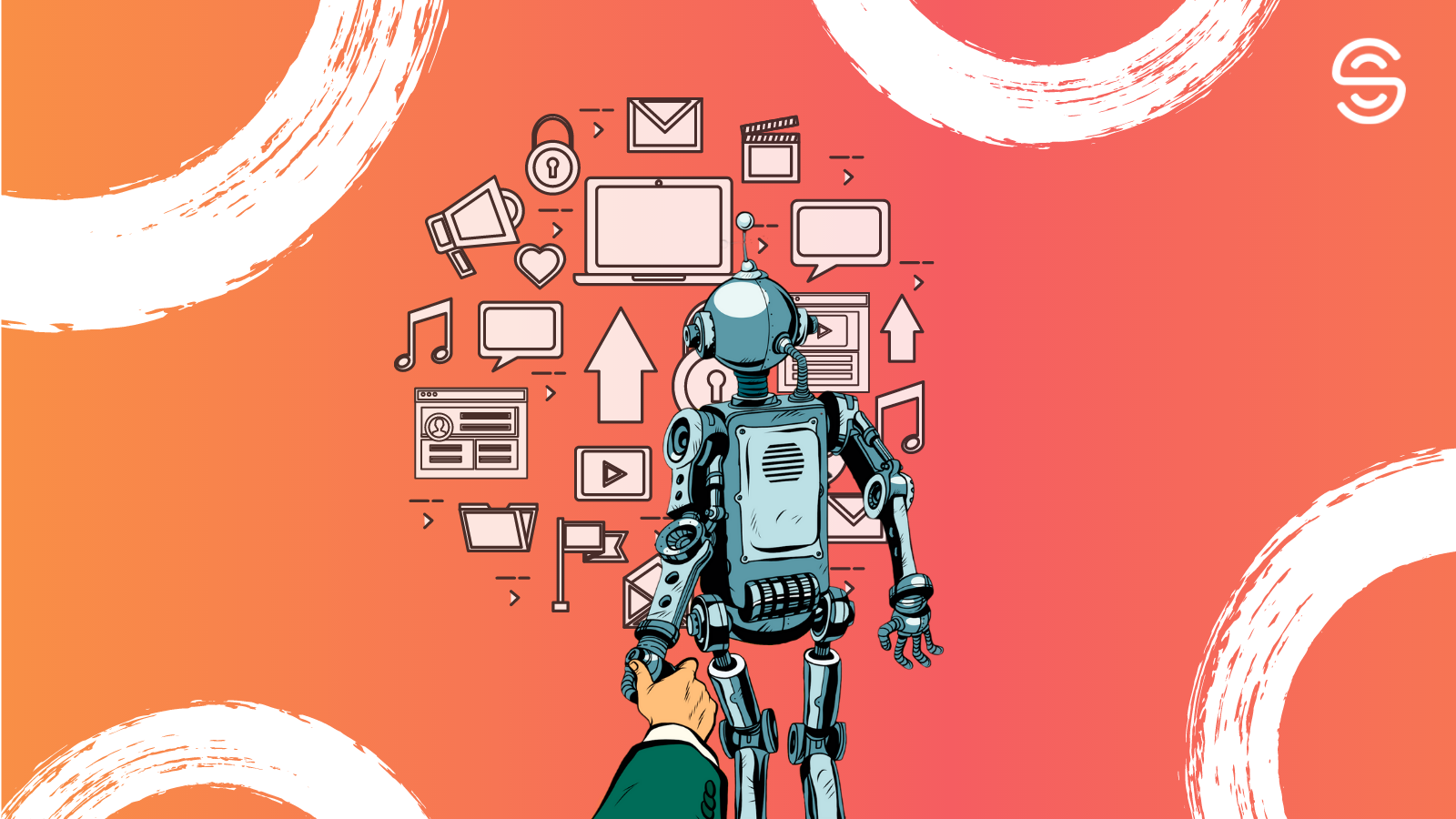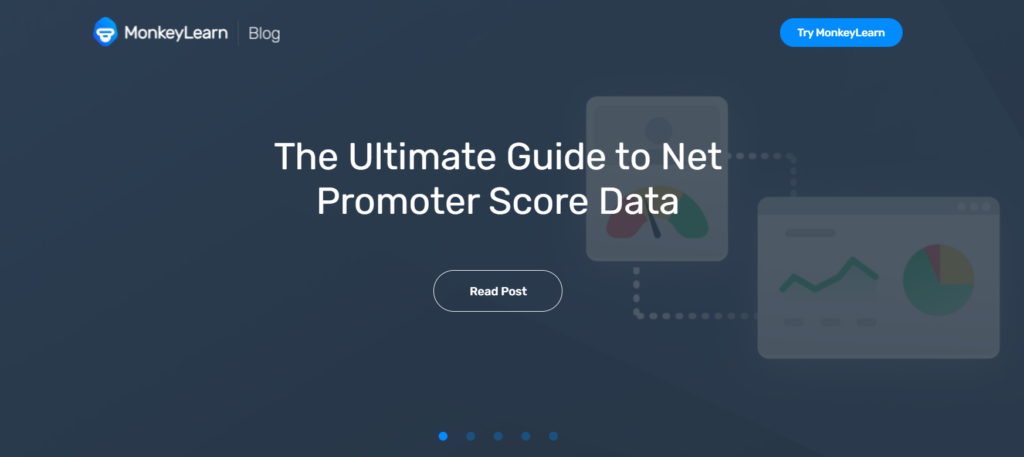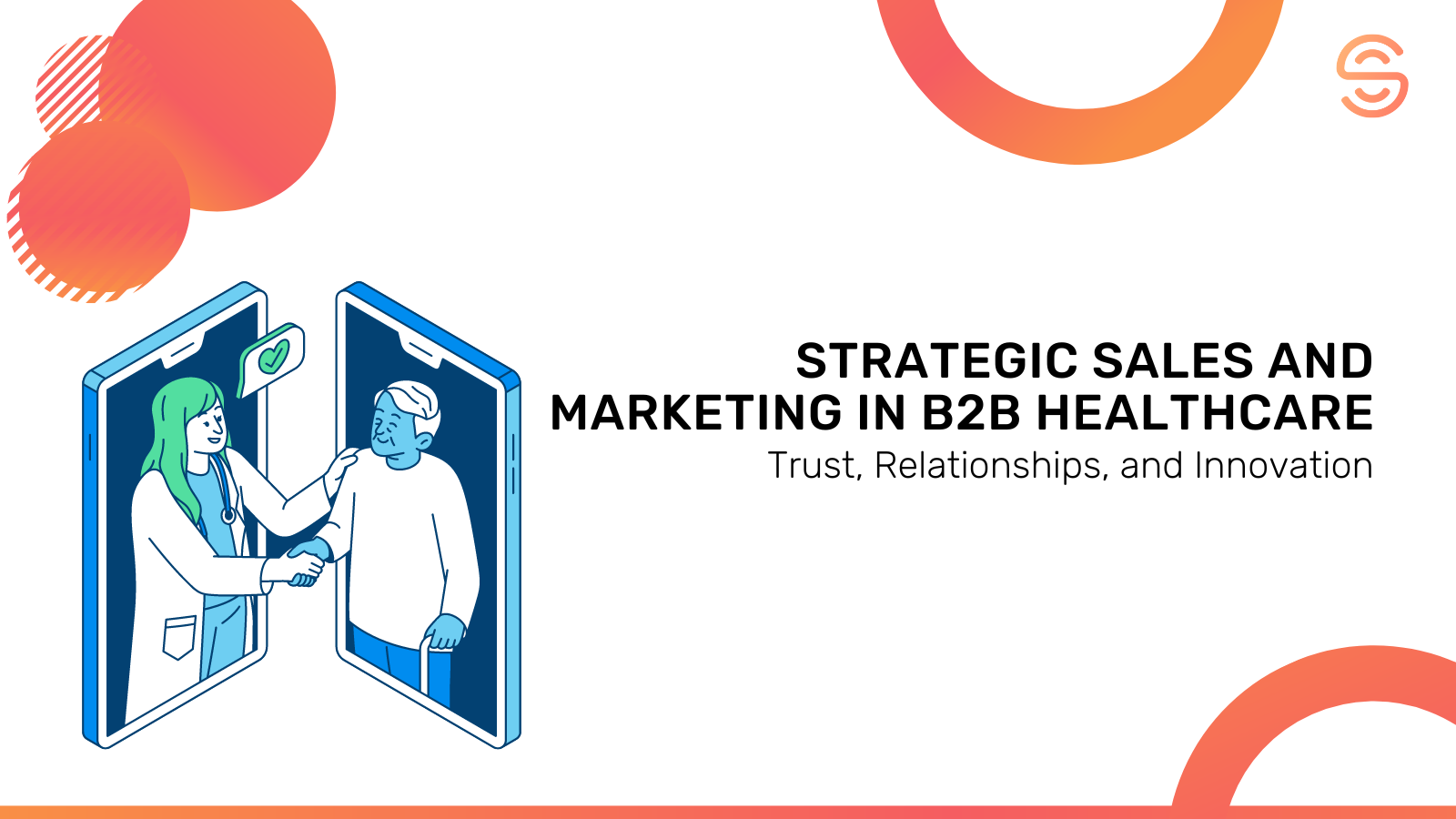10 Best Ways to Apply Artificial Intelligence in Marketing: Insider Use Cases from Signum.AI
June 1, 2023 11 min. read

Try AI-Driven Insights
Monitoring for Free
Discover new business ideas and growth opportunities using
our AI-powered insights monitoring tool
It’s no secret that artificial intelligence is all over the place, and there’s a reason for that — it allows you to enhance all of your business processes and stay ahead of the game (read: your competitors).
By now, you must have already heard that AI can help you attract a bunch of warm leads, create high-quality content and automate all your operations in general. But today, we want to get more specific.
Let’s look at the top 10 clear-cut AI use cases in marketing that’ll help you make more informed decisions and take your income to the next level. Shall we? ?
Smart Chatbots
Chatbots are an integral part of decent customer service as they ensure near-human interaction.
But chatbots can be simple and smart. While simple chatbots reply to customers based on a pre-made set of answers, smart chatbots use machine learning mechanisms to analyze the context of the conversation. The algorithms learn from every interaction and build a database of responses to derive answers from for future conversations.
The system understands the intent, the sentiment, and even the undertone of a client’s messages. This way, the customer gets more individual and personalized replies.
Hyper-Segmented and Personalized Emails
Email marketing is still one of the most effective ways to increase your audience’s engagement and speed up sales. But as the marketing industry evolves, clients demand their emails to be more personalized. How can you achieve that? Try hyper-segmentation.
Remember this golden rule: the more segments you have, the more sales you’ll close. Why is deep segmentation so important? Because it’s key to personalization, and personalization is fundamental to customer engagement. Good thing AI-powered software can help with that.
Using a technique called predictive analytics, AI-driven tools can forecast which letters will be the most interesting to which audiences. In other words, you’ll send the right letters to the right people at the right time of the day. Don’t waste your time on the wrong folks — only target those who are most likely to buy from you.
Lead Scoring
Lead scoring is the process of qualifying your client base from least to most active based on a set of factors (like engagement on your channels & their personal info). How does that help your business? Once you know which leads are the most involved with your brand, you can detect patterns that lead to higher conversions and scale them to the rest of your audience.
To score your leads, we suggest relying on AI. The reason’s pretty simple: analyzing massive amounts of real-time statistical data necessary for successful lead scoring campaigns can be challenging for marketers in terms of time, accuracy, and human error. Artificial intelligence tools, on the other hand, will do the job precisely and in a flash.
Content Generation
It’s no big surprise that AI can effortlessly create content for your website, social media, and ad campaigns. Moreover, the software can generate all sorts of creatives, from texts and images to subject lines and newsletters — and there are even special platforms for each type of content.
Now, there are some particularly interesting AI use cases in content creation we want to share with you.
SEO
Since it’s the e-commerce era, SEO plays a huge role in the success of your content. It’s strategically important to rank high in the search results because Google is where most of your customers come from.
Luckily, in 2021, there’s plenty of tools to help you SEO-optimize your content. Machine learning mechanisms help understand the intention behind most used keywords and improve your Google search rank.
Image Recognition
Image recognition is a powerful computer technology that allows us to “see” and analyze visual information on the web. It can scan gigantic amounts of pics and videos on the Internet to identify the trending and best-performing ones. Thanks to that, the algorithms help you understand which posts get high engagement. How does it benefit your marketing strategy? Image recognition simply helps detect the best content ideas on the market to later apply them to your business.
Nex-Level Advertising Design
Nowadays, neural networks have come to a point where they can not only generate powerful creatives but also customize the style and color schemes of your marketing campaign (based on statistical data).
AI explores your customers’ behavioral patterns and analyzes which visual strategies bring better results in certain segments. For example, suppose your older audiences prefer to see black & white ads and the younger community appreciates more bright & colorful adverts. In that case, smart AI algorithms will immediately discover that and automatically send ready-made ads to relevant groups.
And if that’s not convincing enough, try this: the system can personalize ad design even for single individuals. All it takes is the analysis of a user’s activity history (likes, shares, comments, skips, and so on). As you can tell, advertising design has never been easier.
Marketing Attribution
Marketing attribution basically means tracking the flow of visitors to your website and their behavior on it. It’s super helpful in identifying the strong and weak points of your “digital territory” to make your customer experience as enjoyable as it can be.
There are special AI-powered platforms that tell you why clients back out before even considering hitting the “buy” button, and then help you fix that problem. So if, for example, your page is loading too slowly or your visuals aren’t optimized for the mobile version of your website, the intelligent system will immediately alert you of the issue.
With AI-driven website audits, you’ll make sure your customers go all the way through your sales funnel and make the purchase.
Personalized Push Notifications
Push messages are one of the best ways to interact with your audience as they give them a feel of face-to-face communication — when done right, of course. And by “right,” we mean “personalized.” The more personalized your push notifications are, the better. If a customer feels that you are talking to him or her exclusively, they are more likely to reply or engage with your brand.
What is AI’s role in this? Intelligent algorithms collect data about a lead’s previous online behavior and then generate custom-made notifications.
Look at how folks as TripAdvisor do it:

Customer Sentiment Analysis
Sentiment analysis is an integral part of high-quality customer experience. Simply put, it’s the process of analyzing your customers’ spirit, responses and reactions through statistical data from your website & social media channels.
The best part about using AI for your customer sentiment analysis is the real-time factor. Neural software tools can aggregate not only all the data collected over a long period of time but also fresh real-time info. This allows you to quickly recognize any potential issues and instantly fix them.
Platforms like MonkeyLearn are real pros at this.

The service reads comments clients leave on your channels and identifies opinions and emotions behind them. Then, the algorithms tag all this data as either “Negative,” “Positive” or “Neutral” to make predictions about future customer behavior and help you see the “leaks” in your business strategy.
So, yeah, AI-powered customer sentiment analysis helps you listen to your audience!
Next Best Action
This one’s pretty self-explanatory. The AI develops a recommended next best action based on a customer’s profile, needs, past activity and real-time actions on the web. These AI-powered models suggest what next action a customer should take to speed up the sales cycle. That is, what a salesperson should drive the client to do at every stage of the buying process.
For example, if a customer’s actions imply that he or she is doubting the purchase, next-best-action tools can suggest showing a relevant, personalized banner with a unique offer or opening a live chat to answer any possible questions. If a user has just registered on a website and subscribed to a newsletter, it might be a good idea to send him a customer-tailored email offering a one-time coupon. And sometimes, it’s best not to bother the leads at all — the software will let you know when that’s the case, too.
Anyway, using next-best-action tools, sales reps can focus only on high-probability leads and minimize customer churn.
Augmented Reality Models
In a nutshell, augmented reality (AR) models combine the best of two worlds: the digital and the real-life one. Specifically, AR tools overlay computer-generated visuals onto real-life pictures.
An outstanding example is L’Oréal’s virtual try-on offer. The company makes it possible for users to try out products on themselves before buying and see how they will look. How does it work? You select a desired product, upload a picture of yourself to the website and let AI mechanisms apply it to your face. Simple as that.
The same principle can be applied to pretty much every product.
Rundown
Leveraging artificial intelligence for your business is no longer an option — it’s a must-do. In 2021, it’s easier than ever to improve your customer experience and boost your sales. So why not use this opportunity?
Take advantage of all the available AI-driven tools and take your business to the next level!
More useful content on our social media:
